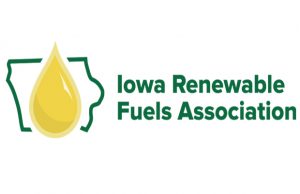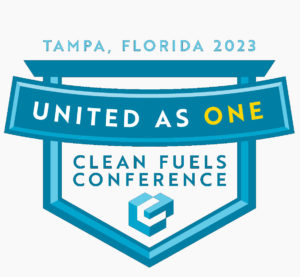 Biofuels groups offered testimony to the Environmental Protection Agency Tuesday during a virtual public hearing for the proposed rule to establish required Renewable Fuel Standard (RFS) volumes and percentage standards for 2023-25.
Biofuels groups offered testimony to the Environmental Protection Agency Tuesday during a virtual public hearing for the proposed rule to establish required Renewable Fuel Standard (RFS) volumes and percentage standards for 2023-25.
“Overall, we believe the proposed ‘Set’ rule establishes a firm foundation for the future of the RFS and creates a pathway for sustainable growth in the production and use of low-carbon renewable fuels,” said Renewable Fuels Association President and CEO Geoff Cooper in verbal testimony.
Cooper also stated that RFA strongly supports EPA’s approach to small refinery exemptions, including its assumption that zero exemptions will be granted in 2023-2025, and he agreed with EPA’s recent response to a fundamentally flawed GAO report on RFS compliance costs. When it comes to the idea of expanding the RFS to include renewable electricity made from biomass, Cooper said that EPA should maintain a level playing field and consistent approach to RIN generation for all renewable fuel pathways under the RFS.
American Coalition for Ethanol (ACE) CEO Brian Jennings testified in support of EPA setting an effective conventional biofuel requirement of 15.25 billion gallons for 2023 through 2025, projecting no small refinery exemptions (SREs) for 2023 through 2025 and reiterating refineries are able to pass on RIN costs to their customers, and conceding its antiquated greenhouse gas (GHG) model needs to be updated.
The ACE testimony highlighted concern over EPA’s proposed inadequate advanced biofuel blending targets and “alternative approach” to reduce conventional biofuel blending below 14 billion gallons for 2024 and 2025. Jennings encouraged the Agency to “increase [advanced] volumes consistent with new production capacity scheduled to come online” and “clarify it does not intend to issue retroactive waivers of volumes or reduce conventional biofuel requirements in the final rule.”
Meanwhile, Clean Fuels Alliance America and its members expressed frustration with the proposed volumes for biomass-based diesel because they do not match the volumes that are already in the market and do not account for expected growth in capacity and feedstocks.
“The proposed rule significantly undercounts existing biomass-based diesel production and fails to provide growth for investments the industry has already made in additional capacity, including for sustainable aviation fuel,” Clean Fuels CEO Donnell Rehagen stated in testimony to EPA.
Clean Fuels Vice President of Federal Affairs Kurt Kovarik stated at the hearing, “Clean Fuels is once again frustrated that EPA has the wherewithal needed to determine current production, the knowledge of the investments being made, and the resources to accurately determine feedstock availability yet proposes a no growth scenario.” Clean Fuels members also highlighted investments that have been made to increase biodiesel and renewable diesel production and distribution capacity, pointing to the successful USDA Higher Blends Infrastructure Incentive Program as one source of investment.












